This has been a busy year providing experiential learning opportunities for our
undergraduates. First, STA 4950, Capstone in Statistics and Data Science, was officially approved by the university and is offered as an approved elective for all majors and statistics minors in the department. STA 4950 is a teamwork-based culminating experience that synthesizes methods and skills acquired in statistics and data science courses by working on a data-focused project provided by partnering institutions. During the Spring 2025 semester, the students in STA 4950 were able to work with data scientists from a government agency. For this project students focused on how people and cultures are changing over time, and how analysts can potentially use datasets to better anticipate change, place events into the appropriate context, hypothesize causal relationships, and ultimately inform the President, Cabinet and senior policymakers in the U.S. government. The project consisted of four main tasks:
-
- Combine the datasets using country and year.
- Create a country/year dashboard or visualization.
- Understand the existing freedom designations and determine if there are additional ways to separate and describe countries.
- Identify indicators of political and security changes.
Each team consisted of five students and both teams were invited to present their findings to the agency in Washington, D.C. with support from a CLAS experiential learning grant.
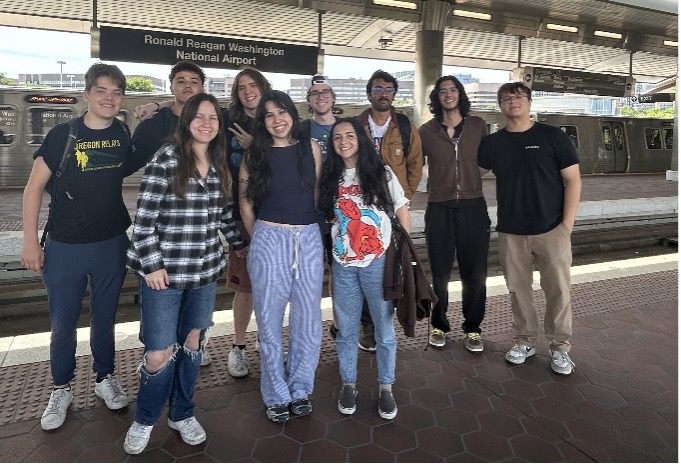 |
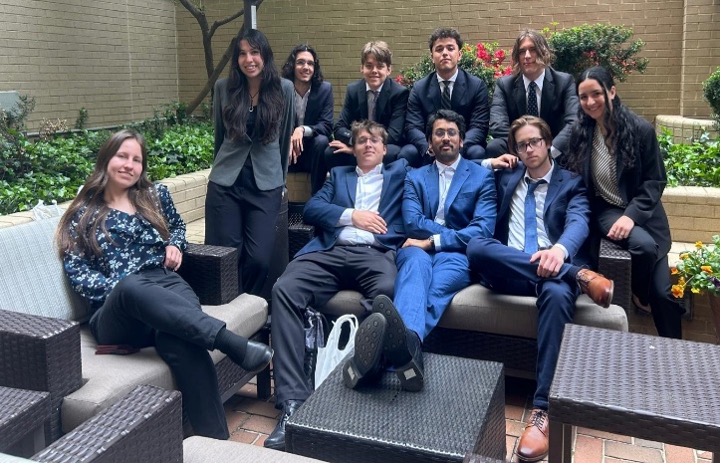 |
In Summer B, 2025, 20 undergraduates in statistics and data science participated in our first extended study abroad program. Starting in Cambridge, we visited Rothamsted Research. Here, our first team of nine students commenced working with plant pathologists and data scientists to clean and analyze data from a long-term experiment on a fungal disease affecting wheat. They were able to visit the site of these experiments and present their findings to Rothamsted personnel at the end of the program. Students in the Fall STA 4950 course will continue working on this particular project as there is a lot of data which Ronald Fisher would be glad to hear!
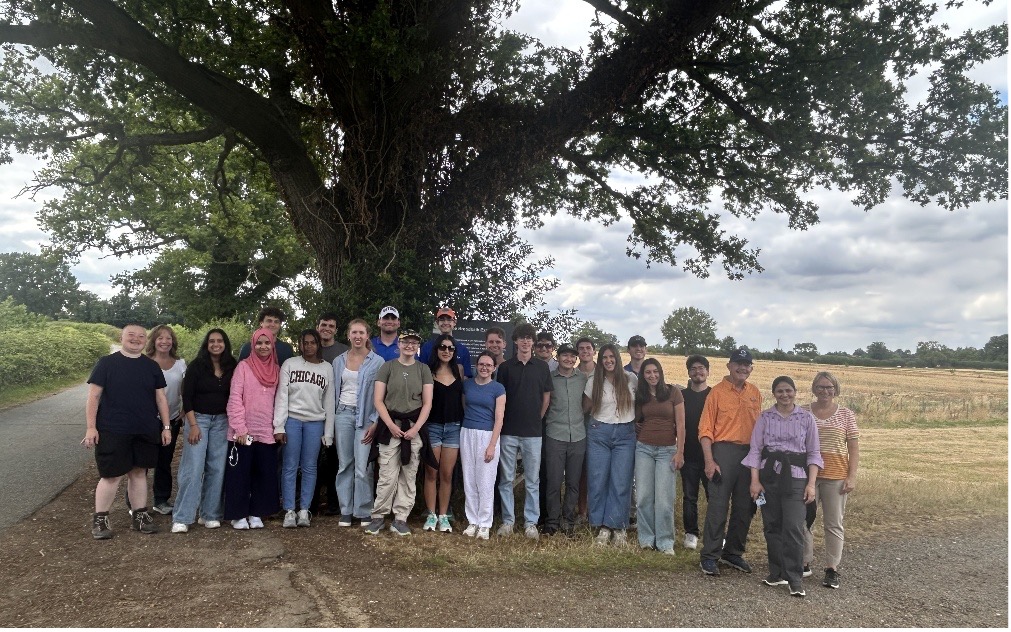 |
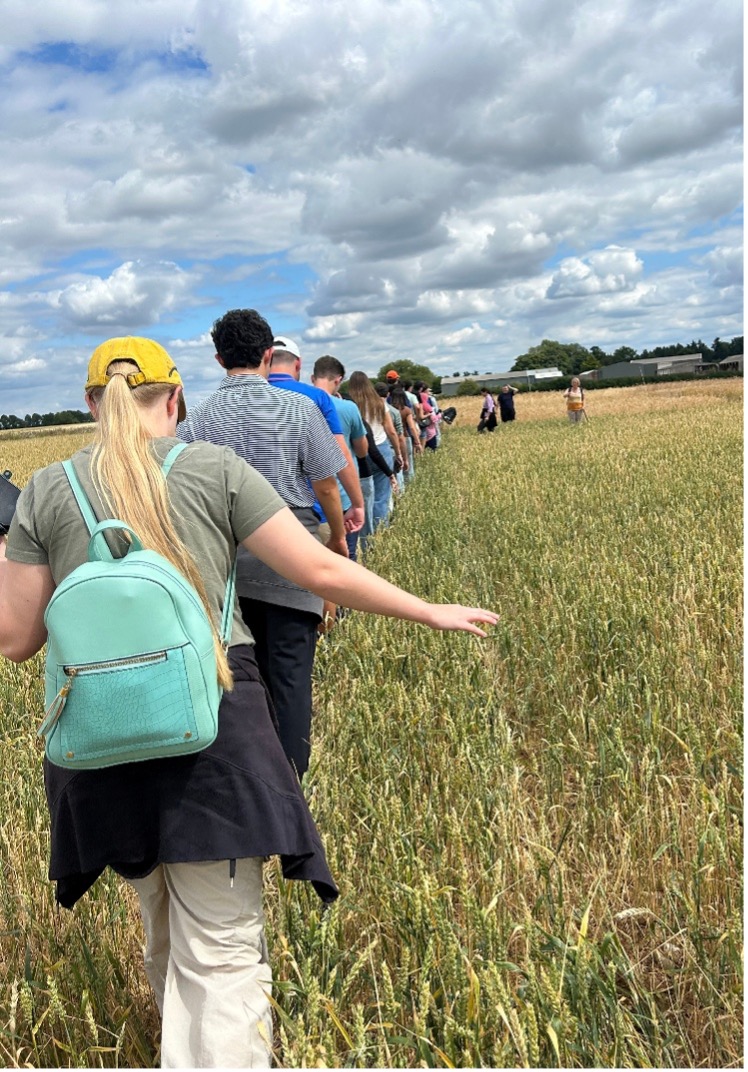 |
A second team of six students worked with archivists, including Jessica Lutkin, Ph.D,, from the National Archives in Kew to create data visualizations depicting the movement of immigrants in medieval England 1330-1550. They were shown how the data was transcribed from the original Latin scrolls. They were also warned about the veracity of this data as it was primarily collected from tax records, and these were not consistent from county to county. In addition, students developed lessons plans for UK students ages 11-14 to describe these visualizations using statistical language based on updated guidelines from the Royal Statistical Society.
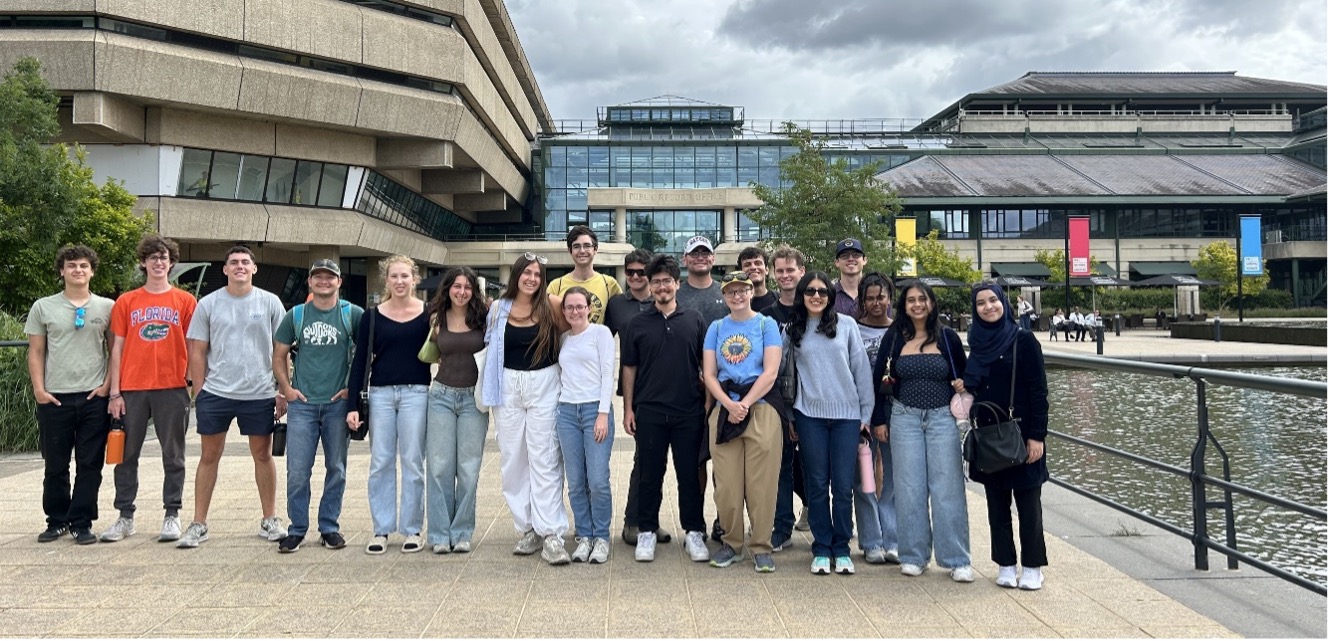 |
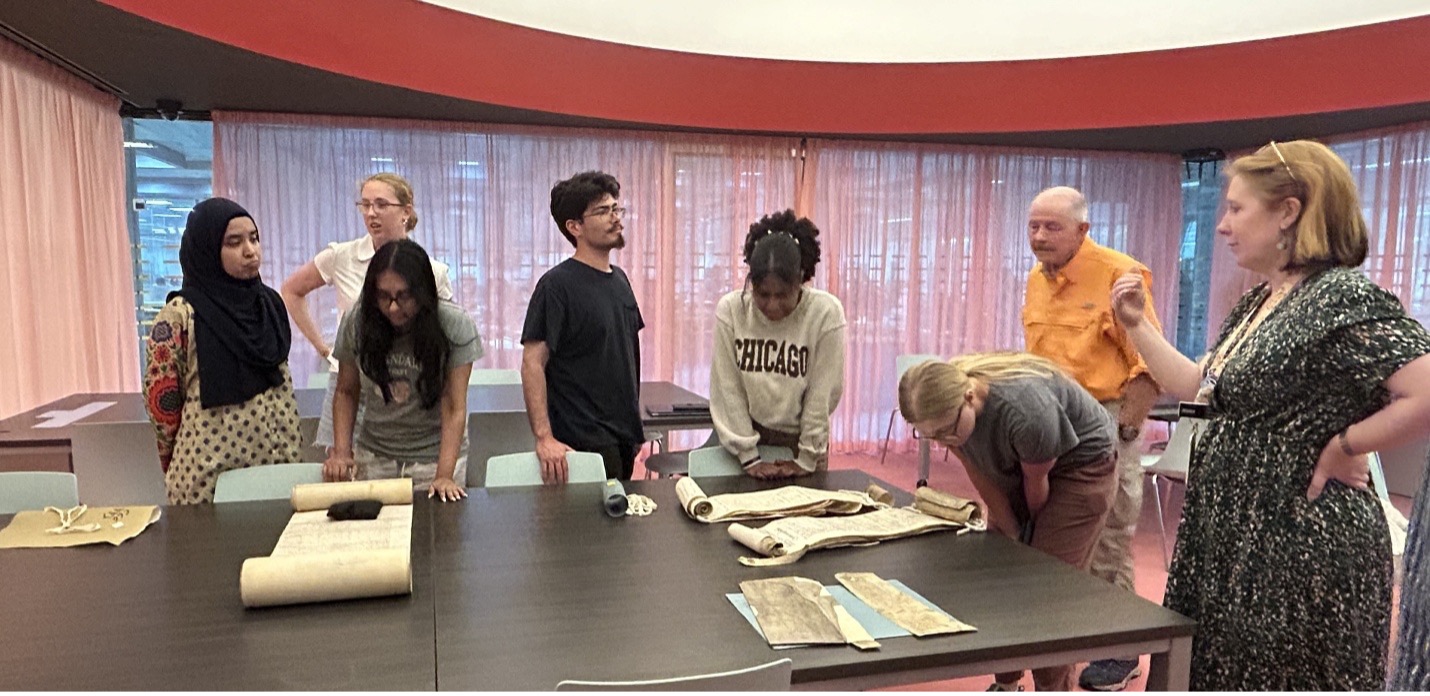 |
Our final team, all sports enthusiasts, learned about a sport of which they had minimal prior knowledge, namely cricket! To introduce them to this sport, we attended a T20 Vitality Blast cricket match between Middlesex and Surrey at the world-famous Lord’s Cricket Ground. Their project was to collect and analyze data from the 2023 and 2024 Vitality Blast seasons to determine factors which impacted the final result of matches. Each season involved 18 county teams, playing a total of around 125 games per season. In addition, they studied what match factors might discriminate between teams making the playoffs and those that did not.
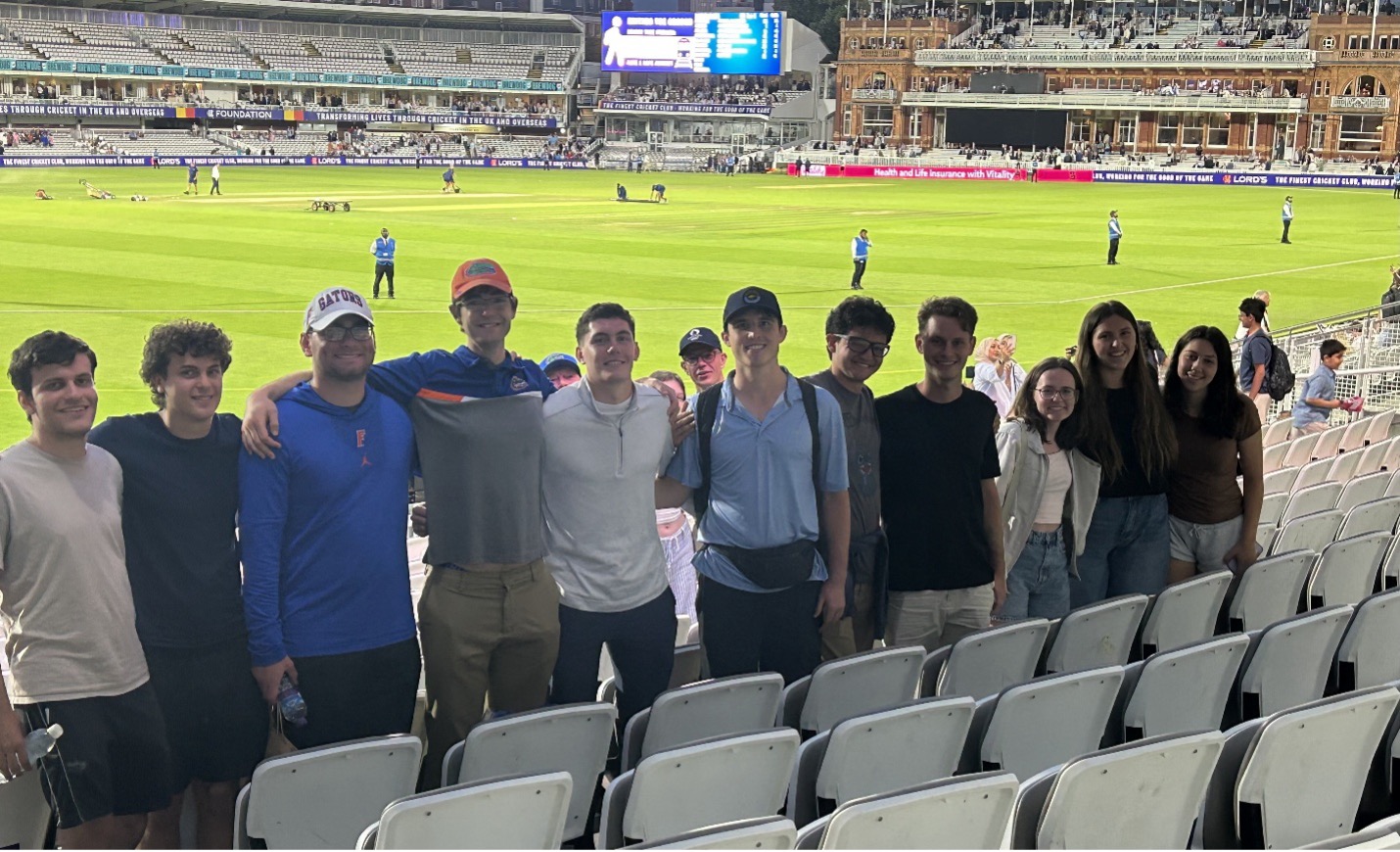
All of the above projects provided students with interesting challenges when working with real-life data and they rose to the challenges very well!